A recent study conducted by agricultural economists through the...
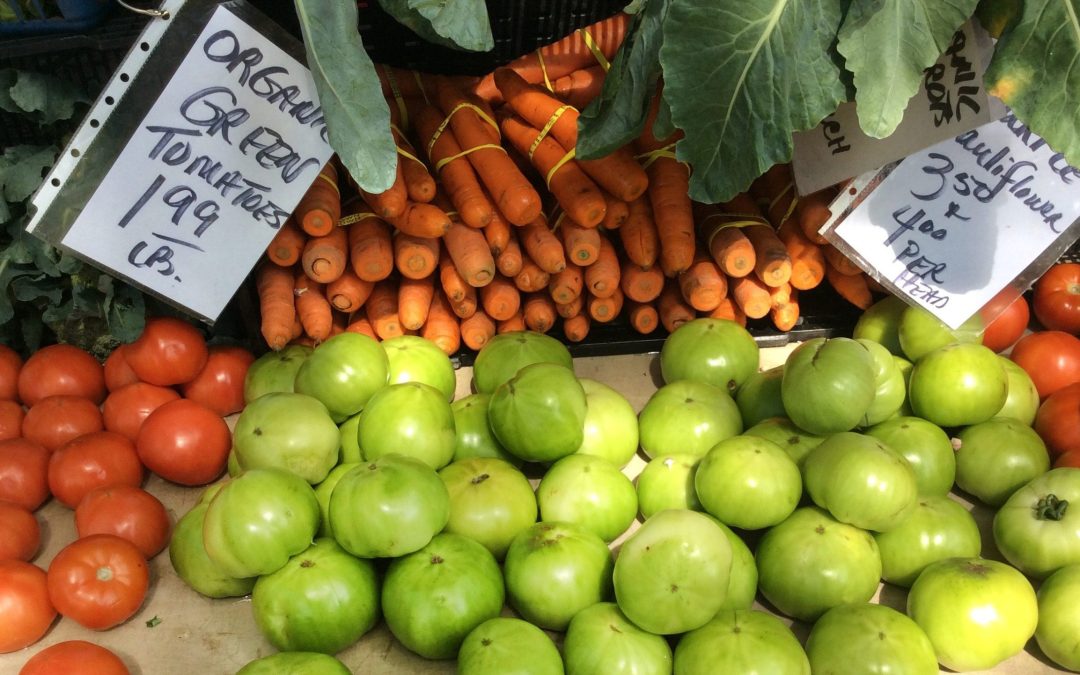

A recent study conducted by agricultural economists through the...
Two soon-to-be alumni of the Auburn University College of Agriculture’s Department of Agricultural Economics & Rural Sociology received the highest honors the college can bestow upon graduates ahead of commencement ceremonies on Saturday, Aug. 3. Angela Touchette...
Researchers at Auburn University aim to reduce U.S. greenhouse gas emissions due to agriculture by modifying one of the world’s largest voluntary conservation programs: the USDA’s 25-million-acre Conservation Reserve Program (CRP). A team of agricultural economists...
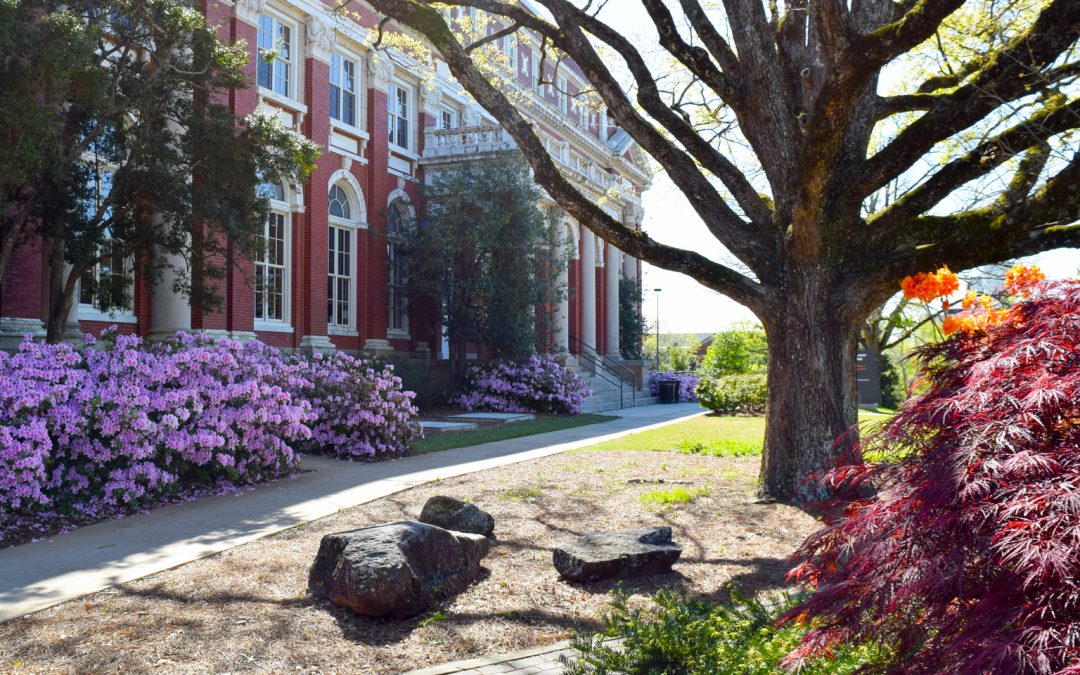
Several faculty and students in the College of Agriculture at Auburn University recently received national awards and recognitions. Read some highlights below. Beckmann...

Two soon-to-be alumni of the Auburn University College of Agriculture’s Department of Agricultural Economics & Rural Sociology received the highest honors the...
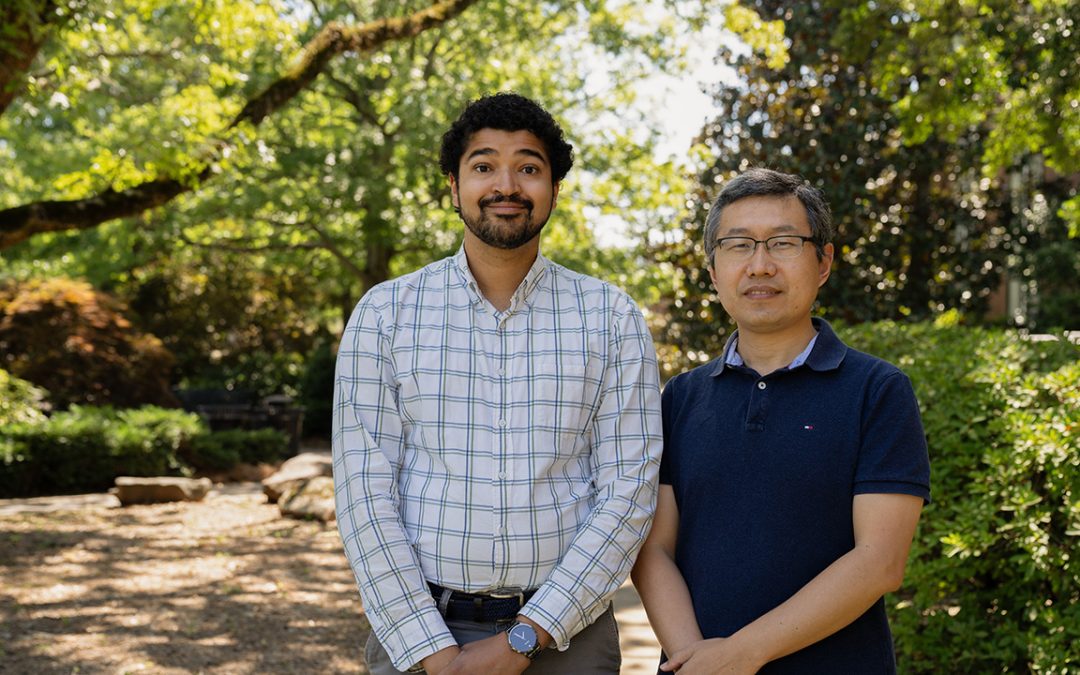
Researchers at Auburn University aim to reduce U.S. greenhouse gas emissions due to agriculture by modifying one of the world’s largest voluntary conservation programs: the USDA’s 25-million-acre Conservation Reserve Program (CRP).
John Canfield is a Ph.D. student in the Sociology program at the University of Wisconsin-Madison. In 2019, he received his M.S. in Rural Sociology at Auburn University, where his research focused on the financialization of farmland in rural Illinois. His advisor was...
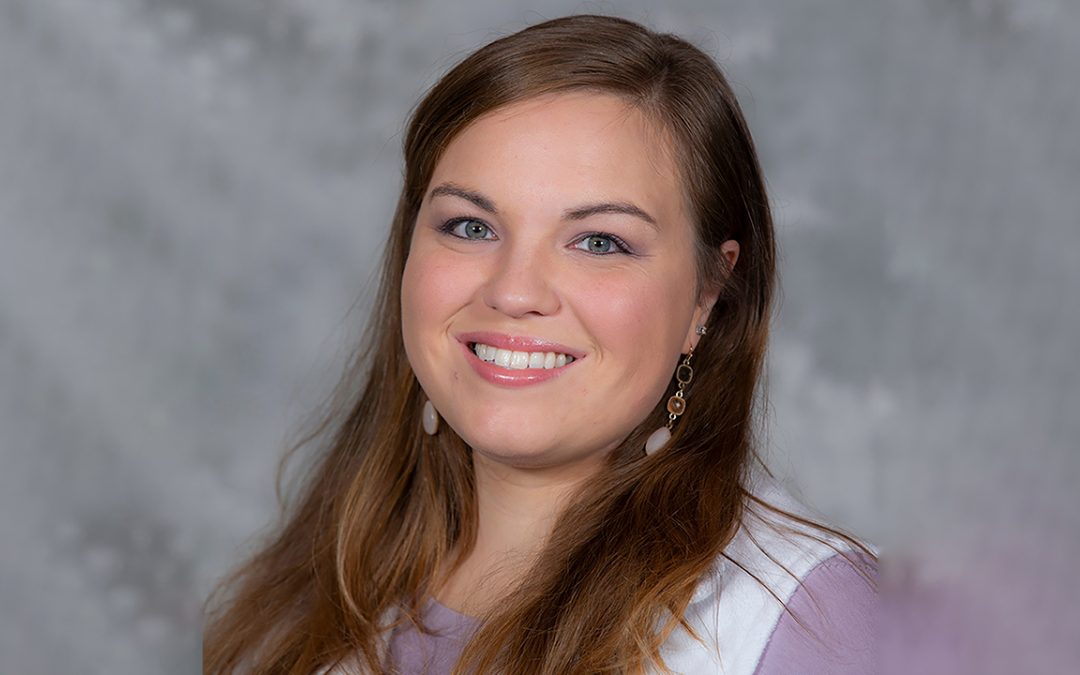
Jennie Hargrove is a Youth Program Specialist with the Iowa 4-H Youth Development Program. In her role, she provides program, volunteer, and professional supports to seven county 4-H programs in south central Iowa. Jennie completed her B.S. in Family and Consumer...
Nineteen Auburn College of Agriculture and Alabama Agricultural Experiment Station faculty who collectively secured more than $11.8 million in research funding in the past fiscal year were among the 32 honorees in the college’s 2018 faculty and staff awards program in...
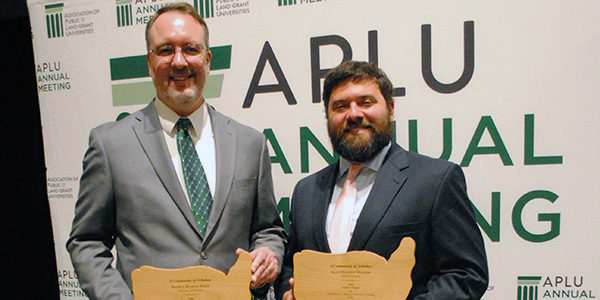
An Auburn University associate professor and a department chair soon to join the Auburn family were honored in November by the USDA’s Association of Public and Land-grant Universities’ annual meeting in New Orleans.
Joshua Duke, currently professor of applied economics and statistics at the University of Delaware, will join the Auburn University College of Agriculture on March 1, 2019, as Department of Agricultural Economics and Rural Sociology chair and professor. College of...
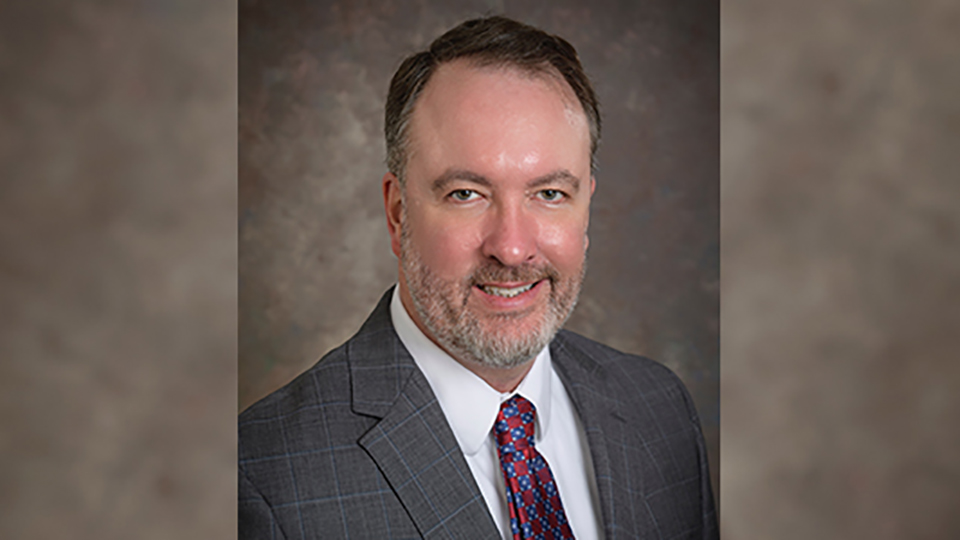
Joshua Duke, currently professor of applied economics and statistics at the University of Delaware, will join the Auburn University College of Agriculture on March 1, 2019, as the Department of Agricultural Economics and Rural Sociology chair and professor.
Auburn rural sociology graduate students Lindy Olive and James Patterson III claimed two of the three master’s thesis awards the Rural Sociological Society presented during its recent annual meeting in Portland, Oregon. As winners, the two received $2,000 cash awards.
Dalton Richardson received an MS in Rural Sociology at Auburn University before joining the Sociology PhD program at the University of Oregon, where he is currently a Graduate Teaching Fellow. His research interests include rural life in the United States,...
Auburn University researchers are hoping to reduce some of the risks and uncertainties of growing biomass crops with a project that focuses on the socioeconomic implications and public policy challenges of bioenergy market development and expansion. Biomass crops are...
James H. Patterson III is the Geographical Information System (GIS) Analyst for the Department of Information Technology for Clayton County in Georgia. In this role, he manages all technical aspects of Geographical Information Systems for emergency services in the...
Lindy Olive is a research project coordinator at Northwestern University. She manages projects related to how women spend their time in a day (the 24-hour cycle) and outcomes for cardiovascular health. While at Auburn, she focused on local food systems, meal kits for...
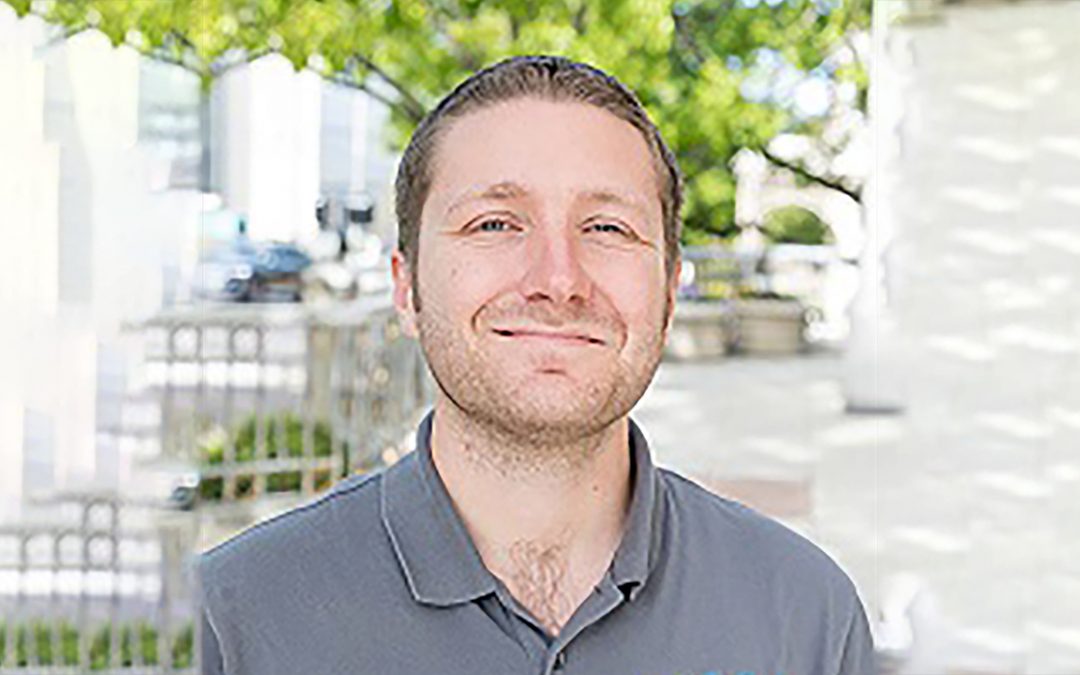
Karl Galloway currently serves as the Cultural Resource Specialist for the Alabama Bicentennial Commission. In this capacity he promotes historical and cultural events throughout the state, and assists smaller municipalities in organizing their own celebrations. He...
Deacue Fields, Department of Agricultural Economics and Rural Sociology professor and chair at Auburn, has accepted a position as dean of the University of Arkansas’s Dale Bumpers College of Agricultural, Food and Life Sciences and will assume that role in mid-May.
By Paul Hollis The latest numbers tell the irrigation story: In Alabama, only 15 percent of the land currently available for farming is irrigated, a far cry from Mississippi’s 61 percent of cropland and Georgia’s 40 percent. Over time, that lack of irrigation...
By Paul Hollis Long-term research is vital to the future of U.S. production agriculture, but farmers can’t always afford to wait for solutions to their most pressing problems. That’s why a new Auburn University funding program is providing shorter-term grants that...
By Paul Hollis By most any standard, a $1.85 return on an initial investment of $1 is a good deal. According to a recent study, that’s what federal investments into agricultural research pay back through additional investments from state, local and private-sector...
By Paul Hollis While fruits and vegetables are undeniably good for the body, they’re also a major boost for Alabama’s economy, Auburn University and Alabama Agricultural Experiment Station economists found in a recently completed analysis of the industry. “Specialty...
One of the earliest undergraduate degree programs available to students at what today is Auburn University will return fall semester 2017 when the College of Agriculture begins offering a Bachelor of Science in Agricultural Science. Auburn’s Department of Horticulture...
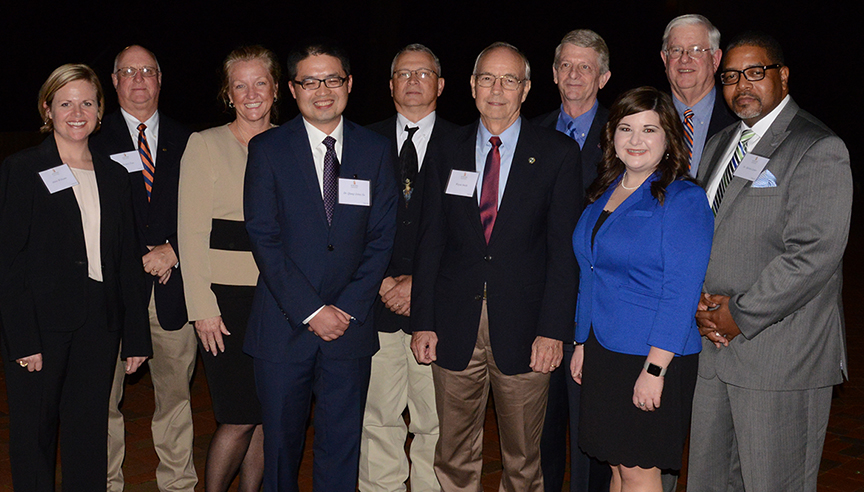
Ten successful professionals who hold academic degrees from Auburn University’s College of Agriculture have been selected as the college’s most outstanding alumni for 2017. The 10 include the recipient of the 2017 Alumni Service Award and nine Alumni Award winners who were chosen by and represent the academic units and programs from which they earned their degrees.
The Auburn University Agricultural Alumni Association will honor five men who have had a major impact on Alabama agriculture when it hosts the 2017 Alabama Agriculture Hall of Honor banquet Feb. 9 at the Auburn Marriott Opelika Hotel and Conference Center. The five...
Henry Fadamiro has been tapped to serve as associate dean for research in Auburn University’s College of Agriculture and as associate director of the Alabama Agricultural Experiment Station, effective Jan. 1, 2017. He has served as the college’s assistant dean and...
John Canfield is a Ph.D. student in the Sociology program at the University of Wisconsin-Madison. In 2019, he received his M.S. in Rural Sociology at Auburn University, where his research focused on the financialization of farmland in rural Illinois. His advisor was...

Jennie Hargrove is a Youth Program Specialist with the Iowa 4-H Youth Development Program. In her role, she provides program, volunteer, and professional supports to seven county 4-H programs in south central Iowa. Jennie completed her B.S. in Family and Consumer...
Nineteen Auburn College of Agriculture and Alabama Agricultural Experiment Station faculty who collectively secured more than $11.8 million in research funding in the past fiscal year were among the 32 honorees in the college’s 2018 faculty and staff awards program in...

An Auburn University associate professor and a department chair soon to join the Auburn family were honored in November by the USDA’s Association of Public and Land-grant Universities’ annual meeting in New Orleans.
Joshua Duke, currently professor of applied economics and statistics at the University of Delaware, will join the Auburn University College of Agriculture on March 1, 2019, as Department of Agricultural Economics and Rural Sociology chair and professor. College of...

Joshua Duke, currently professor of applied economics and statistics at the University of Delaware, will join the Auburn University College of Agriculture on March 1, 2019, as the Department of Agricultural Economics and Rural Sociology chair and professor.
Auburn rural sociology graduate students Lindy Olive and James Patterson III claimed two of the three master’s thesis awards the Rural Sociological Society presented during its recent annual meeting in Portland, Oregon. As winners, the two received $2,000 cash awards.
Dalton Richardson received an MS in Rural Sociology at Auburn University before joining the Sociology PhD program at the University of Oregon, where he is currently a Graduate Teaching Fellow. His research interests include rural life in the United States,...
Auburn University researchers are hoping to reduce some of the risks and uncertainties of growing biomass crops with a project that focuses on the socioeconomic implications and public policy challenges of bioenergy market development and expansion. Biomass crops are...
James H. Patterson III is the Geographical Information System (GIS) Analyst for the Department of Information Technology for Clayton County in Georgia. In this role, he manages all technical aspects of Geographical Information Systems for emergency services in the...
Lindy Olive is a research project coordinator at Northwestern University. She manages projects related to how women spend their time in a day (the 24-hour cycle) and outcomes for cardiovascular health. While at Auburn, she focused on local food systems, meal kits for...

Karl Galloway currently serves as the Cultural Resource Specialist for the Alabama Bicentennial Commission. In this capacity he promotes historical and cultural events throughout the state, and assists smaller municipalities in organizing their own celebrations. He...
Deacue Fields, Department of Agricultural Economics and Rural Sociology professor and chair at Auburn, has accepted a position as dean of the University of Arkansas’s Dale Bumpers College of Agricultural, Food and Life Sciences and will assume that role in mid-May.
By Paul Hollis The latest numbers tell the irrigation story: In Alabama, only 15 percent of the land currently available for farming is irrigated, a far cry from Mississippi’s 61 percent of cropland and Georgia’s 40 percent. Over time, that lack of irrigation...
By Paul Hollis Long-term research is vital to the future of U.S. production agriculture, but farmers can’t always afford to wait for solutions to their most pressing problems. That’s why a new Auburn University funding program is providing shorter-term grants that...
By Paul Hollis By most any standard, a $1.85 return on an initial investment of $1 is a good deal. According to a recent study, that’s what federal investments into agricultural research pay back through additional investments from state, local and private-sector...
By Paul Hollis While fruits and vegetables are undeniably good for the body, they’re also a major boost for Alabama’s economy, Auburn University and Alabama Agricultural Experiment Station economists found in a recently completed analysis of the industry. “Specialty...
One of the earliest undergraduate degree programs available to students at what today is Auburn University will return fall semester 2017 when the College of Agriculture begins offering a Bachelor of Science in Agricultural Science. Auburn’s Department of Horticulture...

Ten successful professionals who hold academic degrees from Auburn University’s College of Agriculture have been selected as the college’s most outstanding alumni for 2017. The 10 include the recipient of the 2017 Alumni Service Award and nine Alumni Award winners who were chosen by and represent the academic units and programs from which they earned their degrees.
The Auburn University Agricultural Alumni Association will honor five men who have had a major impact on Alabama agriculture when it hosts the 2017 Alabama Agriculture Hall of Honor banquet Feb. 9 at the Auburn Marriott Opelika Hotel and Conference Center. The five...
Henry Fadamiro has been tapped to serve as associate dean for research in Auburn University’s College of Agriculture and as associate director of the Alabama Agricultural Experiment Station, effective Jan. 1, 2017. He has served as the college’s assistant dean and...